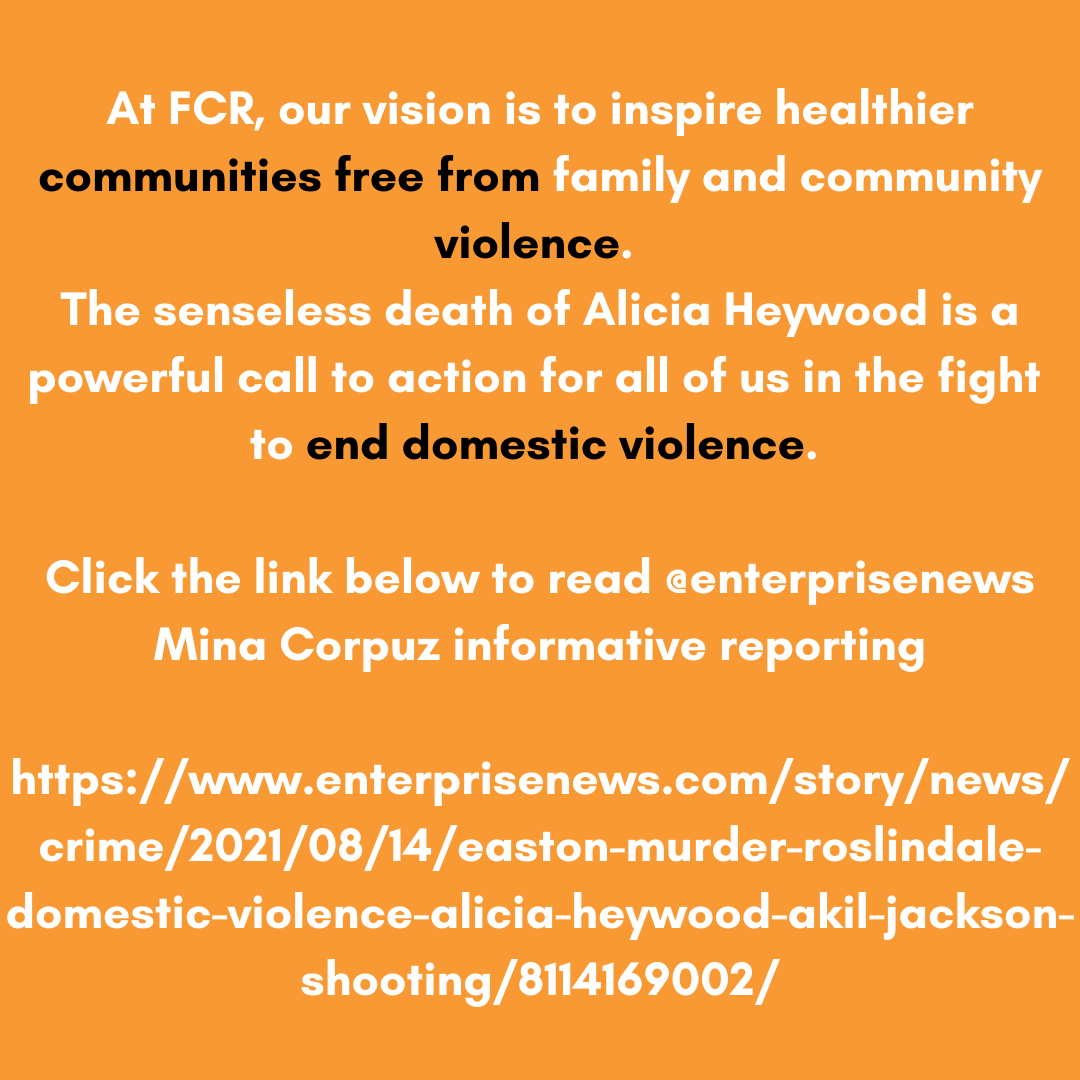FCR Responds to the tragic death of Alicia Heywood
Alicia Nicole Heywood of South Easton, MA, a loving mother and treasured friend of many, was gunned down in broad daylight on July 29 not far from her place of work in Roslindale, allegedly by her intimate partner.
Appallingly, on average nearly 20 people per minute are physically abused by an intimate partner in the US. This equates to over 10 million women and men annually. Equally alarming, one in seven women have been stalked by an intimate partner during their lifetime to the point in which they felt very fearful or believed that they or someone close to them would be harmed or killed. But Alicia Heywood is so much more than a statistic. Upon her murder, friends shared the following, “Alicia was loved by everyone who had the privilege of knowing her. She was a loyal friend, a loving and devoted single mother, and an all -around amazing person She had worked at Sullivan Pharmacy in Roslindale for nearly two years and had spent most of her career in customer relations; she had an affinity for helping others.”
Despite increasing local and national efforts to end domestic violence over the past 40 years, intimate partner abuse remains an oftentimes silent menace in our communities, and we tend to avoid talking about it until another incident like this occurs. On a typical day there are more than 20,000 calls placed to domestic violence hotlines nationwide. Family and Community Resources, Inc. (FCR), a domestic violence support agency based in Brockton for over 50 years, was the recipient of over 400 of those calls during the past nine months. FCR is a member of Jane Doe, Inc, the Mass Coalition Against Sexual and Domestic Violence. Jane Doe defines DV as a wide range of behaviors where one person is exerting power and control over a spouse, a dating partner, and/or adult family member regarding their choices, beliefs, and actions. They documented 28 homicides in Massachusetts related to domestic violence in 2019; an abuser’s access to firearms increases the risk of intimate partner femicide at least five-fold.
While the exact circumstances related to Alicia’s murder will become more evident as the investigation proceeds, what we do know is that one of the most dangerous times for a survivor of DV is when they are trying to leave the abusive situation. We also know that over the past year COVID has created even greater challenges for survivors as they were often trapped in untenable situations; FCR has seen a 15% increase in survivors seeking help over the past eight months.
What can you do to ensure that survivors get the help they need? Know the warning signs of intimate partner abuse. Oftentimes a survivor is ashamed to disclose her situation, but when she or he does, listen without judgment. Help her to understand her situation and how the abuse is affecting her or her children. Tell her you think she is being brave in being able to talk about the abuse, and in being able to keep going despite the abuse. Validate her experience with empathy and support. Ask if you can help them reach out for support from a DV program like FCR. Overall, in 2020 FCR helped over 2000 individuals find the support and resources they needed to stay safe and create a pathway to a brighter future. If you or someone you know needs help, please call our 24-hour hotline 508-583-6498. For additional resources, visit our website at www.fcr-ma.org.
We grieve with Alicia’s family and friends, but we know that the answer to ending intimate partner violence begins with all of us working together to acknowledge this public health problem and taking action.

